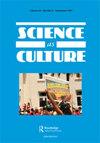资产化与风险投资的逻辑,或者为什么脸书对扎克伯格来说不像是垄断
IF 2.4
3区 哲学
Q1 CULTURAL STUDIES
引用次数: 4
摘要
2021年最有价值的公司是被称为“大型科技公司”的科技公司。近年来,这些公司成为公众和学术审查的对象,特别是因为它们被指责为垄断(Kenney和Zysman, 2016),维持一种有时被称为“技术封建主义”的利润制度(Waters, 2020),并具有巨大的和前所未有的社会和政治影响(Moore和Tambini, 2018)。在2018年的参议院听证会上,Facebook首席执行官兼创始人马克·扎克伯格(Mark Zuckerberg)否认了他的公司是垄断企业的指控,他的立场得到了其他大型科技公司首席执行官的呼应。我们认为,这种立场反映了数字垄断的本质,可以称之为“脆弱的垄断”。数字革命的早期宣言,如内格罗蓬特的《数字化》(1995),认为数字领域本质上是抵制垄断控制的。这种说法有一个合理的理由:与原子相比,比特是可复制的,而且非常便宜。显然,历史否定了经济去中心化数字领域的承诺。然而,内格罗蓬特的基本见解对于理解当代科技巨头垄断的形式很重要。他们的动机是在一个抵制中心化的环境中创造垄断的初步目标。为了这个目的,他们从一开始就开发出了在数字领域可以被垄断的东西。人们对大型科技公司的普遍厌恶反映了它们独特的垄断形式。他们所垄断的通常属于亲密体验领域:自我表达的形式,社会关系,或者用户的记忆和习惯。它们出现在我们的生活中,通常被认为是侵入性的,但事实上,这种侵入性反映了它们资产的短暂性。我们认为,一种新的垄断形式的出现与一个事实有关,而这个事实的重要性在研究中很大程度上被忽视了;即本文章由计算机程序翻译,如有差异,请以英文原文为准。
Assetization and the Logic of Venture Capital, or Why Facebook Does not ‘Feel’ Like a Monopoly to Zuckerberg
The most valuable companies in 2021 are tech firms known as ‘Big Tech’. In recent years these companies were the subject of public and academic scrutiny, especially because they were accused of acting as monopolies (Kenney and Zysman, 2016), maintaining a profit regime sometimes referred to as ‘techfeudalism’ (Waters, 2020), and of having a vast and unprecedented social and political impact (Moore and Tambini, 2018). In a 2018 Senate hearing, Mark Zuckerberg, CEO and founder of Facebook, denied the accusation that his company is a monopoly, and his position was echoed by other Big Tech CEO’s. This position, we argue, is symptomatic of the nature of digital monopolies, which can be termed ‘fragile monopolies.’ Earlymanifestoes of the digital revolution, such as Negroponte’s Being Digital (1995), argued that the digital sphere was inherently resistant to monopoly control. There was a sound reasoning for this claim: bits, in contrast to atoms, are replicable and very cheaply so. History, obviously, refuted the promise of economically decentralized digital sphere. Yet Negroponte’s basic insight is important for understanding the form that contemporary Big Tech monopolies assume. They are motivated by a preliminary aim of creating monopolies, in an environment which is resistant to centralization. For that purpose, they develop from the outset things that can indeed be monopolized in the digital sphere. The popular aversion often directed at Big Tech companies reflects the unique form of their monopoly.What theymonopolize typically belongs to the sphere of intimate experience: forms of self-expression, social ties, or users’ memories and habits. Their presence in our lives is often presented as intrusive, but this intrusiveness reflects, in fact, the ephemeral nature of their assets. We argue that the emergence of a new form of monopoly has to do with a fact whose significance has been largely overlooked in research; namely that
求助全文
通过发布文献求助,成功后即可免费获取论文全文。
去求助
来源期刊

Science As Culture
Multiple-
CiteScore
5.20
自引率
3.80%
发文量
28
期刊介绍:
Our culture is a scientific one, defining what is natural and what is rational. Its values can be seen in what are sought out as facts and made as artefacts, what are designed as processes and products, and what are forged as weapons and filmed as wonders. In our daily experience, power is exercised through expertise, e.g. in science, technology and medicine. Science as Culture explores how all these shape the values which contend for influence over the wider society. Science mediates our cultural experience. It increasingly defines what it is to be a person, through genetics, medicine and information technology. Its values get embodied and naturalized in concepts, techniques, research priorities, gadgets and advertising. Many films, artworks and novels express popular concerns about these developments. In a society where icons of progress are drawn from science, technology and medicine, they are either celebrated or demonised. Often their progress is feared as ’unnatural’, while their critics are labelled ’irrational’. Public concerns are rebuffed by ostensibly value-neutral experts and positivist polemics. Yet the culture of science is open to study like any other culture. Cultural studies analyses the role of expertise throughout society. Many journals address the history, philosophy and social studies of science, its popularisation, and the public understanding of society.
 求助内容:
求助内容: 应助结果提醒方式:
应助结果提醒方式:


